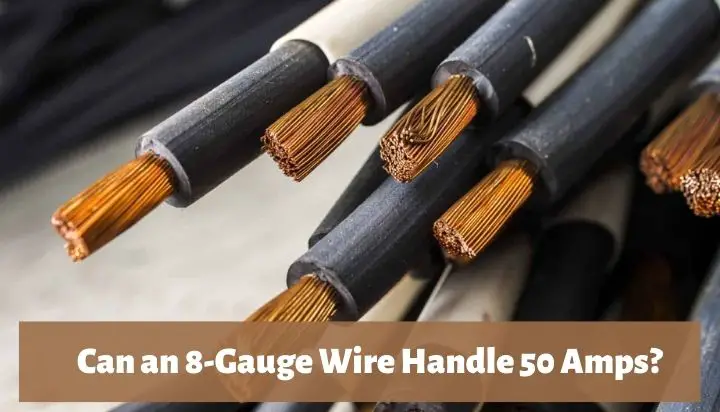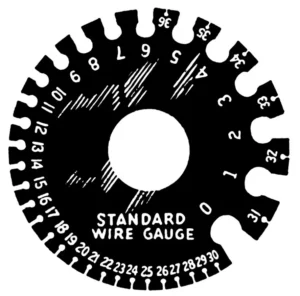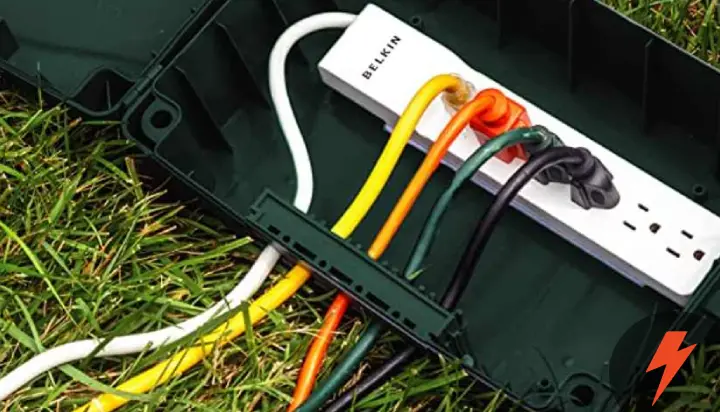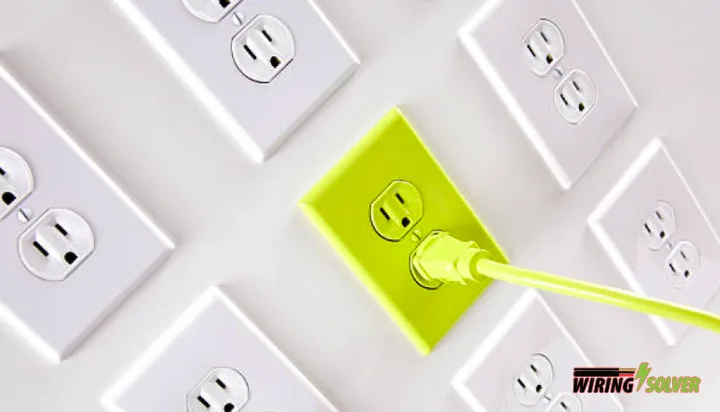This brings us to the topic at hand, can 8 gauge wire handle 50 amps?
The short answer is yes. An 8-gauge wire can handle a current of 50 amps at a temperature of 90-Celsius or 194-Fahrenheit. But, only if it is a copper wire. In the case of an aluminum wire, a 6-gauge wire is required.
Throughout this article, I will discuss the importance of wire gauge and whether an 8-gauge wire is sufficient to handle 50 amperes. So, without further ado, let’s begin.

Why Is Wire Gauge Important?
To establish how much electrical current may flow through the wire and how much resistance they have, circuit breakers need specific wire sizes. The type of wire used affects the efficiency of other electrical appliances as well.

The wire becomes severely heated when a piece of electrical equipment draws electricity from it. The might overheat and melt if it isn’t adequately specified for the electrical circuit’s rating, which could result in major mishaps including electrical fires and short circuits.
This makes it extremely important to pick a wire size that is suitable for the circuit you’ll be utilizing it with. You must also consider the size of the wire when calculating the maximum Wattage for a 14-gauge extension cable.
Depending on a number of variables, there are many types of wires. These parameters, which include material, gauge (AWG), and others, all have a substantial impact on the circuit and the power that flows through it.
What Size Wire Do I Need for 50 Amps?
For proper wire identification, it is imperative to adhere to the gauge amperage rating table. It is exceedingly dangerous to use a wire with a smaller gauge than necessary. The wire can become overheated and melt.
So, can 8 gauge wire handle 50 amps? Let’s take a look at the chart below.
Wire Gauge Amperage Ratings Chart
| Current (Amps) | Copper Wire (AWG) | Aluminum Wire (AWG) | NM Cable (AWG) |
| 15 | 14 | — | 14 |
| 20 | 12 | 12 | 12 |
| 30 | 10 | 10 | 10 |
| 40 | 8 | 8 | 8 |
| 50 | 8 | 6 | 8 |
As the chart provided above dictates, an 8-gauge wire or an 8 AWG wire should suffice for 50 amperes if the wire is a copper wire or an NM wire. However, if the wire is made up of aluminum, you would require a 6-gauge wire or a 6 AWG wire instead.
Which Factors Matter in Choosing the Correct Wire?
The wire’s length and the material it is made of both have a significant influence on the circuit. The heat created will undoubtedly affect the wire because each material has a different temperature rating.
Length
The best course of action is to consult an expert and obtain their advice on the job at hand when deciding what size wire to use at various lengths.
Go up one size bigger than your job need if your wire is within a conduit, coupled with other wires that might hinder heat dissipation.
The rule must also be followed if the wire has to be run for over 100 meters.
Material
Check to determine whether you need a different size if you’re using a wire that isn’t comprised of brass, silver, or copper.
Copper wires are known to be used much more frequently, whereas aluminum wires have different requirements. The conductivity of aluminum wires is around 61 percent of that of copper wires.
However, they are still 70% lighter than copper wires.
Ampere:
Ampere rating can directly affect the size of the wire. The greater the ampere of the supply, the lower the gauge. This means the wires have to be thicker.
As can be seen from the chart provided above, with the increase in power, also comes the increase in thickness of the wire.
Distance:
Distance also is a crucial consideration in choosing the correct wire. For wire lengths below 100 meters, the chart above should be followed.
But if the length of the wire exceeds 100 meters, it is good practice to use a wire gauge one size greater than the one provided in the chart.
What Would Happen if the Wrong Size Wire is Used?
Never work with wires that aren’t rated for the current they’re going to carry. The worst-case scenario is that the wire might melt or get too hot.
Think about a circumstance in which you should use the correct gauge for a 50-amp cable but do so with a gauge meant for merely 40 amps. This is probably going to overload the wiring and start a fire.
While using a wider wire than necessary isn’t always a terrible idea, using a smaller wire than necessary is often a bad idea. Using a cable that is larger than necessary may only be an inconvenience, but it is never dangerous.
Make sure it is made for the application you have in mind and pay attention to the strand count, insulation quality, and durability. It’s also wise to install larger wires for power outlets given how often people utilize extension cables with them. You won’t have to worry about your safety.
If you use thicker wires, most of the time nothing untoward will happen. Simply said, it’s pointless and unlikely to be helpful. Using a wire gauge that is too large has several drawbacks even though there may not be any immediate harm. They consist of:
- Increased cost due to the additional material bought with the wire.
- Increased weight due to similar reasons.
- Bigger wires are not advised for high-speed signals.
- May cause inconvenience to the installation procedure.
Summary
So, can 8 gauge wire handle 50 amps? If you have thoroughly read the entire article, you should be able to answer the question yourself. But let’s revise again.
Yes, an 8-gauge wire can handle 50 amperes if it is a copper wire. However, if it is an aluminum wire, you will require a 6-gauge wire.
If the wire gauge and type of material still feel confusing to you, feel free to consult an electrician for advice. It is always good practice to be extra sure in terms of electrical installations.
References:




![How to Fix A Cut Electrical Wire In A Wall! [Explained]](https://wiringsolver.com/wp-content/uploads/2022/07/How-To-Fix-A-Cut-Electrical-Wire-In-A-Wall.webp)
![Why and When Is Myers Hub Required? [All You Need to Know]](https://wiringsolver.com/wp-content/uploads/2022/11/when-is-Myers-hub-required.jpg)
![How to Fix a Doorbell That Doesn’t Ring? [Solved]](https://wiringsolver.com/wp-content/uploads/2022/06/How-to-Fix-a-Doorbell-That-Doesnt-Ring.jpeg)